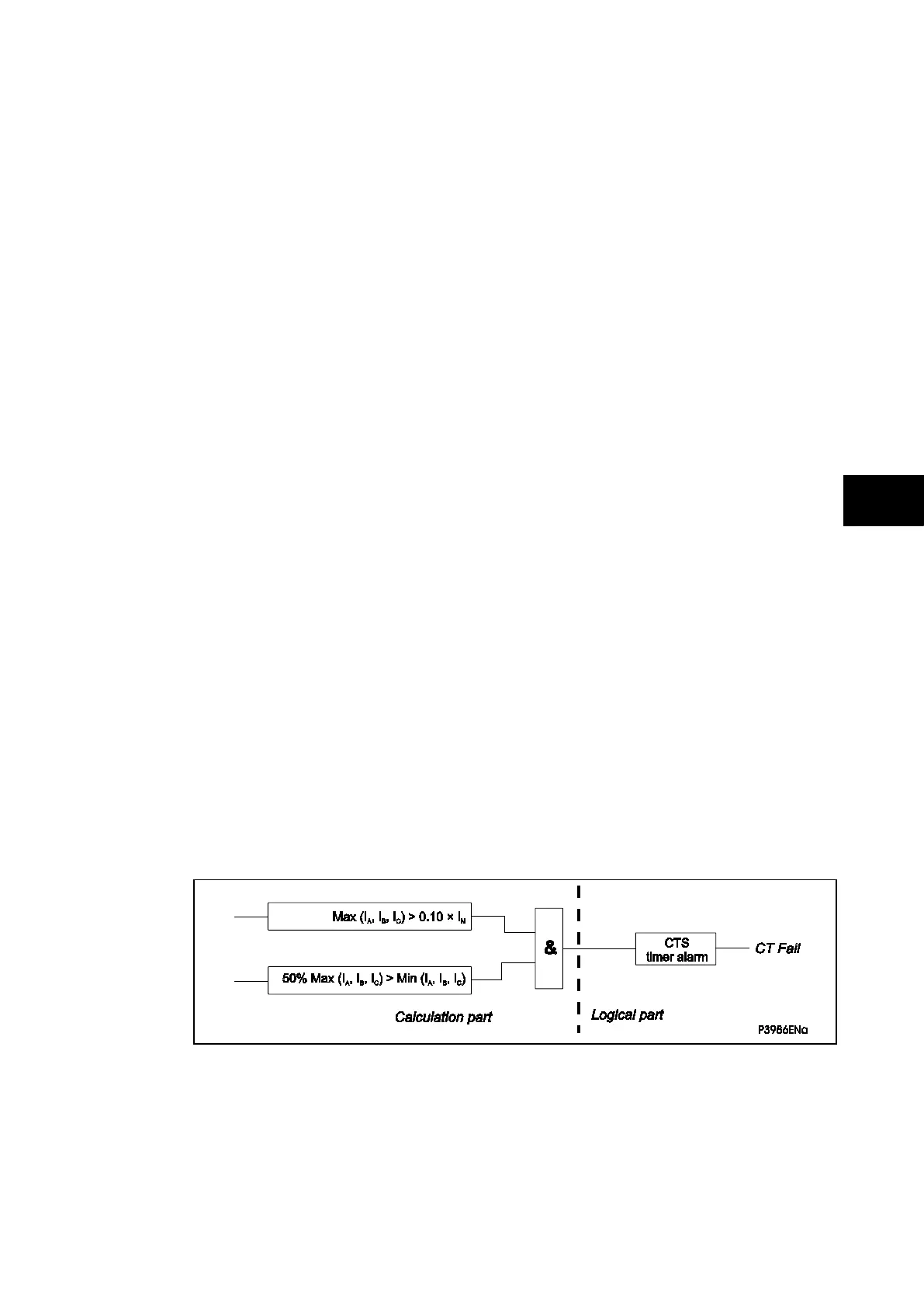P74x/EN OP/N
(OP) 5-
During an earth fault the two values should be the same and the sum should therefore be
equal to zero or below the threshold (CTS Ι
N
> Set) and the CT supervision alarm will not be
issued.
If an internal CT becomes short-circuited, a difference between the derived and measured
value will appear, i.e. a CT problem has been detected and after a user settable time delay
(CTS Time delay) the alarm will be issued.
This calculation is then compared to a further criterion to verify and monitor CT connections
and associated current circuits.
|3
Ι
O
- Ι
N
|> 0.05 Ι
n
+
K
CE
x (|Ι
a
| + |Ι
b
| + |Ι
c
| + |Ι
N
|
)
(Where KCE is a calculation error coefficient and In is the nominal current)
The calculation error coefficient in the above formula is set between 0.01 and 1 thereby
allowing for small discrepancies and preventing false blocking of the differential elements
whilst the constant value of 0.05 I
n
provides stability under no load or low load conditions.
The main causes for alarms from zero sequence current calculations are:
• Commissioning with load current – detection of connection errors (input inverted/rated
current incorrect)
• Maintenance with load current – By pass of analogue input, when a separate neutral CT
is made available.
• Failure of an analogue channel – e.g. A/D converter failure
Once detected, the alarm will be issued after a user settable time delay (Alarm Delay T
CE
).
Because the Peripheral Units sample at 2400Hz, discrepancies between the measured and
derived values are identified and responded to very quickly. If any anomaly arises for either
of the above calculations, the differential elements associated with the faulty Peripheral Unit
can be instantaneously blocked (when ‘I
0
superv. blocking” is set to 87BBP&87BBN). The
blocking signal remains in place for 10ms with an alarm signal sent after the T
CE
time delay.
The time delay is usually set above the time required to trip under fault conditions.
1.5.5 CT Supervision
In addition to the zero sequence (I
0
) supervision, the CT Supervision detects a CT Failure.
If a current is present in the CT (>10% IN), the difference between the magnitude of the
current measured by two phases should not exceed 50%. The Peripheral Unit displays an
alarm when the “CTS timer alarm” time delay is elapsed.
FIGURE 14: CT SUPERVISION
1.5.6 InterMiCOM teleprotection introduction
There are 2 different types of integrated teleprotection available in the MiCOMho relay:
• InterMiCOM
64
- designed to work over 56/64kbit/s fiber optic and multiplexed
communications
• EIA(RS)232 InterMiCOM - typically for MODEM applications
